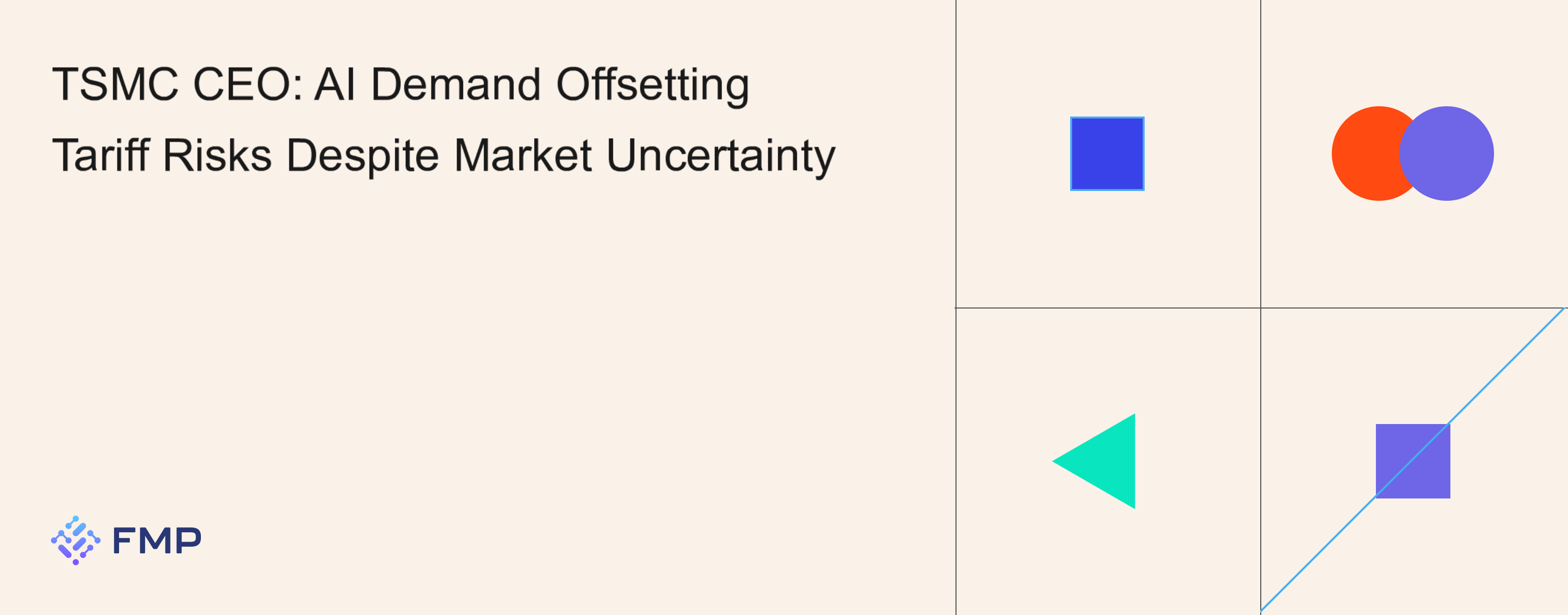Source: Parth Sanghvi
An Overview of the Situation
Taiwan Semiconductor Manufacturing Co. (NYSE:TSM), under the leadership of CEO C.C. Wei, presented an optimistic outlook in the face of challenging macroeconomic conditions. Despite recognizing the adverse effects of U.S. trade tariffs on global markets, Wei remains confident about the company’s future growth. He attributes this optimism to the robust demand for AI chips, which he believes will continue to mitigate the risks associated with global economic uncertainties.
The Impact of Tariffs and the Power of AI
During the company’s annual shareholder meeting, Wei addressed the issue of U.S. tariffs and their influence on TSMC. As an exporter, the company does not face the direct impact of these tariffs. However, Wei acknowledged that there could be indirect effects on pricing and demand, which could create minor obstacles for the company.
Wei stated, “Tariffs can lead to slightly higher prices, and when prices go up, demand may go down… But I can assure you that AI demand has always been very strong and it’s consistently outpacing supply.” This suggests that increased AI demand can help offset any potential decline in demand due to price hikes resulting from tariffs.
He also highlighted that so far, the company has not observed any significant shifts in customer behavior due to these tariffs. However, Wei anticipates more clarity on these dynamics in the upcoming months.
Impressive Earnings and U.S. Investment Strategy
TSMC’s recent strong Q1 earnings and a bullish multi-year forecast echo Wei’s confidence. The company’s robust position in the AI semiconductor supply chain as the leading contract chipmaker greatly contributes to this positive outlook. TSMC supplies to leading tech giants such as Nvidia (NASDAQ:NVDA) and Apple (NASDAQ:AAPL), among other U.S. tech firms that are rapidly expanding their AI infrastructure.
In a strategic move to solidify its global positioning, TSMC has pledged over $165 billion towards the expansion of U.S. chipmaking. This decision is geared towards reducing geopolitical exposure, meeting the localized production requirements of American clients, and taking advantage of U.S. subsidies and incentives.
Key Insights for TSMC’s Future
For investors and market analysts closely monitoring the chip industry’s fundamentals, resources like the Key Metrics (TTM) API provide detailed operational data. Additionally, the Revenue Product Segmentation API can offer insights into how AI-related segments are contributing to TSMC’s top-line growth. These tools can be invaluable for gaining a deeper understanding of TSMC’s financial health and growth potential.
Conclusion
The comments by TSMC’s CEO, C.C. Wei, highlight a significant market trend. While geopolitical and tariff-related risks continue to pose challenges, the surge in AI-driven demand is providing a strong momentum for global chipmakers. This trend is expected to hold steady, with AI technology continuing to permeate various industries and sectors. As a result, companies like TSMC that have a firm foothold in AI chip production are ideally positioned to capitalize on this growing demand, despite the broader economic headwinds.

